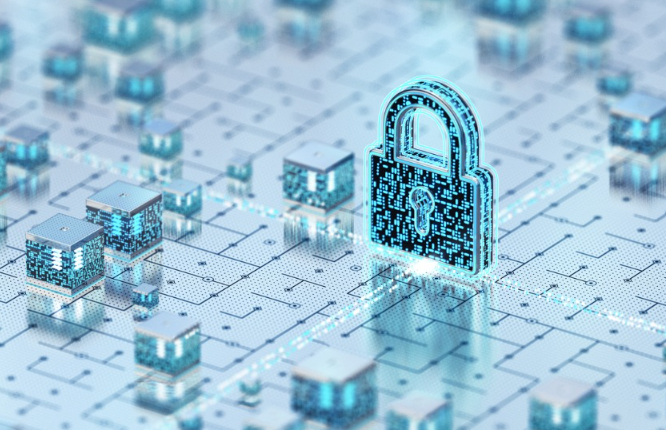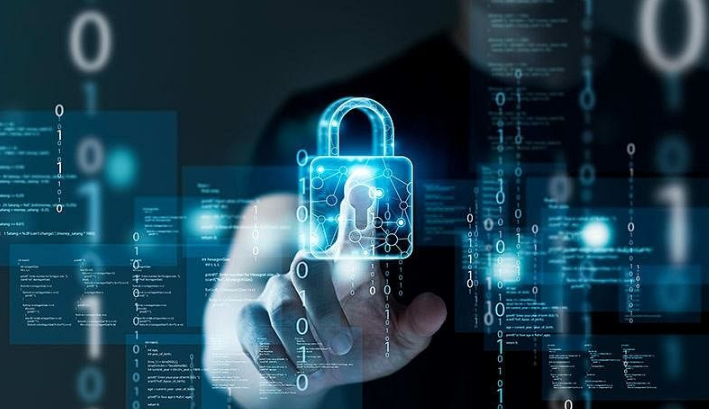Five Pillars Of Cybersecurity

Admin
AI Research Analyst | 10 December 2024Table of Content












The more technology advances, the more necessary it becomes to keep your online presence secure. Cybersecurity provides security in every way, whether it's your personal data, financial management, or business secrets.
To keep yourself safe online, you must know the five pillars of cybersecurity. If you do not know the pillars of cybersecurity, you are in the right place. In this blog post, we will first discuss the meaning of the five pillars of cybersecurity and then understand each in detail.
Working of Five Pillars of Cybersecurity
The five pillars are the fundamental principles of cybersecurity, ensuring that all data is secure. These pillars keep data safe, ensure that only authorized users have access to the data, and monitor all online actions.
Cybersecurity provides strong security for an organization and people’s trust in that organization.
No. 1: Confidentiality (Data Security)
Its main purpose is that the data should only be accessible to users with proper access to it. You can take the example of your bank details; only you have access to them, or you can give permission to someone to whom you give permission. This password maintains security by controlling encryption via encryption.
Online shopping companies also check the customers' data by encrypting it. Otherwise, any hacker can access the user's data and misuse it. Data can be secured by encrypting it while maintaining confidentiality, and unauthorized access can be secured.
No. 2: Integrity (Accurate Information)
The next pillar of cybersecurity is integrity, meaning the data you send, receive, or save is secure. It helps you send, receive, and keep only secure data safe to avoid potential damages.
For example, if you send a message to someone and you do not like it, someone else opens that message and changes it, and the final person gets a different message. You want to provide accurate information; this is the purpose of this pillar of cybersecurity.
Integrity means ensuring that the data you want, whether a message, file or any other information, is received the same way it was initially.
Example of Integrity
You work on a school project; for example, if you have written an essay, you just close it, and the next time you open that essay, you ensure there is no change in it.
It is an essential pillar because sometimes hackers can access your system, make changes, and create confusion.
Tools To Maintain Integrity
Tools are used to maintain integrity in cyber security. Like checksums and hash functions, it is considered a digital fingerprint of files.
If a file is created, a checksum is also created, and when changes are made in the file, the checksum also changes. Thus, an idea of minor changes in that file is found.
Digital Signature
The other tool used to make sure integrity is a digital signature. For example, when you send an email, you also send a digital signature.
If someone makes any changes to that email, the signature gets removed. Integrity is widely used in government institutes and hospitals because they have a lot of people's data.
No. 3: Availability (Ensure Accessibility of Information & Services)
This pillar of cybersecurity checks whether you have access to the data, services, or information you rely on. It checks the accessibility of your services, information, or anything else.
Like, you want to open your bank account website, but the website needs to be fixed. Availability is especially useful if you need to perform an action suddenly. It ensures that the system runs perfectly.
Example Of Availability
An example of availability is if you go to a library, but it is suddenly locked, and the library is not available to you. It would be a frustrating experience. The same thing happens digitally as well. If services or websites are not accessible, then time is wasted. This pillar of cybersecurity is used to maintain availability.
How to Maintain Availability?
The first solution to maintaining availability is regular backups. If you take backups of a website or application, data is available in case of sudden data loss.
With the help of a redundancy system, you can also maintain availability. Redundancy means that your data is stored in a single system and multiple systems and resources, so even if any system fails, the data should be available.
How Does Availability Protect Us From Hackers?
Availability also keeps us secure from many threats like DDoS attacks. In this attack, hackers send a lot of unusual traffic to the website, which causes traffic to not load properly. Anti-DDos, an available tool, detects this unusual traffic; in this way, the actual user gets a good experience on the website.
No. 4: Authentication (Verification For System Security)
Authentication is verifying a person's identity to give them access to the system or information. It is like a security guard asking a person for their identification before allowing the individual to access a restricted zone.
Security is very important as you engage in different activities on the internet by protecting your accounts, information, etc.
The most important form of authentication is a password. When you create an account, you make it’s password. Every time you access that account, you enter the password.
Passwords can also be stolen, so always choose a strong password that contains letters, numbers, and special characters.
Two-factor Authentication
You can use two-factor authentication to make your authentication strong. If you give your email to access a website, but in two-factor authentication, you will also have to provide something for your additional security, like a phone number.
Now, a fingerprint feature is also being added to mobile phones; this authentication protects your mobile from unauthorized access. It is not just for personal use; companies also use authentication to save their customer's data.
No. 5: Responsibility
Non-repudiation means that once an action is done online, such as sending a message or purchasing, one cannot later deny having acted. It is important, especially for establishing trust in digital payment systems.
It is done via electronic signatures and a record of transactions proving who has done what and when. It also helps avoid fraud and contract disputes, where everyone is responsible for what they do.
Conclusion
These five pillars of cybersecurity play a very important role in keeping your online presence safe. Each pillar has its importance. If even one of these pillars is not there, our internet data is not entirely secure.


